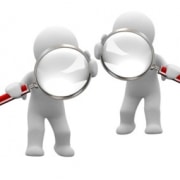EY and KPMG Cheating Scandals Expose Ethical Challenges for Audit Industry

After getting caught ignoring its employees and cheating on the CPA ethics exam, EY has become the latest example of how industry and company-level mindsets can turn into corporate liabilities. The SEC slapped a fine of $100 million on the audit firm, making it clear in their enforcement action that it was punishing both the cheating and the firm leadership’s failure to serve as a gatekeeper.
However, this case with EY is not isolated. Just a few years ago, the SEC settled an enforcement action against KPMG based on a similar pattern of behavior—the commonalities between the two companies are striking and suggest a broader ethical challenge in the audit and advisory industry.
Listening and acting on employee feedback is essential to curb misconduct.
These failures raise a common question: why do otherwise ethical, good professionals risk their careers by cheating? The answer lies at the intersection of behavioral blind spots and corporate culture.
Behavioral Blind Spots Create Conduct Risk
At least three dynamics may explain the pattern of cheating on the ethics test.
First, holding the moral high ground due to one’s role as an “audit” professional, along with the accompanying knowledge or proclaimed values, may paradoxically create complacency.
This weakness appears in other professional domains, such as among ethics researchers. Studies have found that compared to other library books, ethics books are less likely to be returned to the library from which they were borrowed, in violation of the rules. There are likely various reasons for this, including that the act of borrowing ethics books could prime a feeling of righteousness or that reading such books could make one overconfident about their understanding of ethical issues. What stands out is that ethics professionals may become complacent toward the rules expected of everyone.
Like borrowers of ethics books, auditors may view the ethics test as merely a formal requirement. Perhaps they believe their role is basic compliance with law and accounting practices—a rather narrow span of ethical competence.
A second dynamic may be posed by a mistaken sense of hubris. Professionals in advisory roles may unwittingly become overconfident about their expertise. Yet, hubris reduces moral attentiveness, increasing the risk of unethical conduct. This is particularly the case if one’s self-assuredness is accompanied by a feeling of ethical superiority, likely among white-collar professionals. Thus, advisors who know the subject matter in depth may downplay the need to study for and take an ethics exam irrespective of their true ability to address ethical issues.
Subscribe to the Ethical Systems newsletter
Finally, the fact that experts in audit roles routinely focus on numbers and quantitative analysis can create another blind spot. Number-crunching triggers a self-interested mindset that makes it harder to evaluate matters pertaining to common interest, shared norms, and broader ethical expectations. For auditors, because their role is to evaluate their clients’ activities based on numerical reports rather than more subjective indicators of behavior, once the “numbers” absorb them, they are likely even less aware of the ethicality of their behavior.
These blind spots increase the risk of cheating in certain professions. However, these weaknesses don’t exist in a vacuum but play a role in the context of business and organizational culture, which is a key factor in how companies manage risk.
Corporate Culture Can Help Firms Manage Risk
Commonalities and differences between the patterns of conduct at EY and KPMG tell us that these organizations lacked the cultural resources to defuse these behavioral risks, starting with ethical leadership.
At EY, the cheating was widespread—many participated in it across offices, and management was aware. Leaders at KPMG were also in the know; in some cases, senior leaders had even accessed the answer templates to fulfill their exam requirements. For both firms, not just their auditors, the cheating underlies a failure to understand and meet the unique responsibilities of ethical leadership. These not only include acting with honesty and integrity but role-modeling ethics.
The firms struggled to live up to their own stated values. EY publicly emphasized its commitment to ethics as the scandal broke—“nothing is more important than our integrity and our ethics,” the firm noted. Yet, at the time that the cheating behavior occurred, management hesitated to directly and swiftly address it. Moreover, the exam was not treated as an essential task, as shown by the reports that employees stated they didn’t have extra latitude or help to prepare for it.
While many at EY had reported observations of cheating, leadership didn’t pay sufficient attention to these complaints. Yet, listening and acting on employee feedback is essential to curb misconduct because it serves as a key cultural signal to employees that their ethical concerns are heard, and factor into decision-making.
As noted, holding a job as a gatekeeper, such as an auditor, may induce complacency in the face of ethics risk. As with the audit professionals themselves, EY’s and KPMG’s management ranks may have become too self-assured about their ethical compass. This seems all the more likely because competence and confidence increase with seniority. Additionally, leaders become more set in their way and less open to feedback.
When ethical concerns are not taken seriously, and managers don’t model behavior accordingly, the gray zone puts both junior employees and leaders at risk. The resulting slippery slope may normalize misbehavior in unforeseeable ways. Thus, minor blind spots may devolve over time into a cultural pattern, fostering a willingness to take shortcuts across all levels of the organization.
For firms like EY and KPMG, complying with the parameters of the SEC enforcement actions may not be enough. The challenge goes beyond ensuring ethical conduct at the individual level, to a need to embrace the broader and more complex requirements of ethical leadership industry-wide. Once the senior ranks across the audit and advisory sectors develop clarity on their ethical mandate, firms will have set the foundations to prevent the risk that led to cheating on the ethics exam from morphing into another type of misconduct.
Caterina Bulgarella is a culture architect and a member of Ethical Systems’ core team.
Azish Filabi is executive director of the American College Center for Ethics in Financial Services and an associate professor of ethics at the American College of Financial Services. She is also the former executive director of Ethical Systems.
Reprinted with permission from The FCPA Blog.





